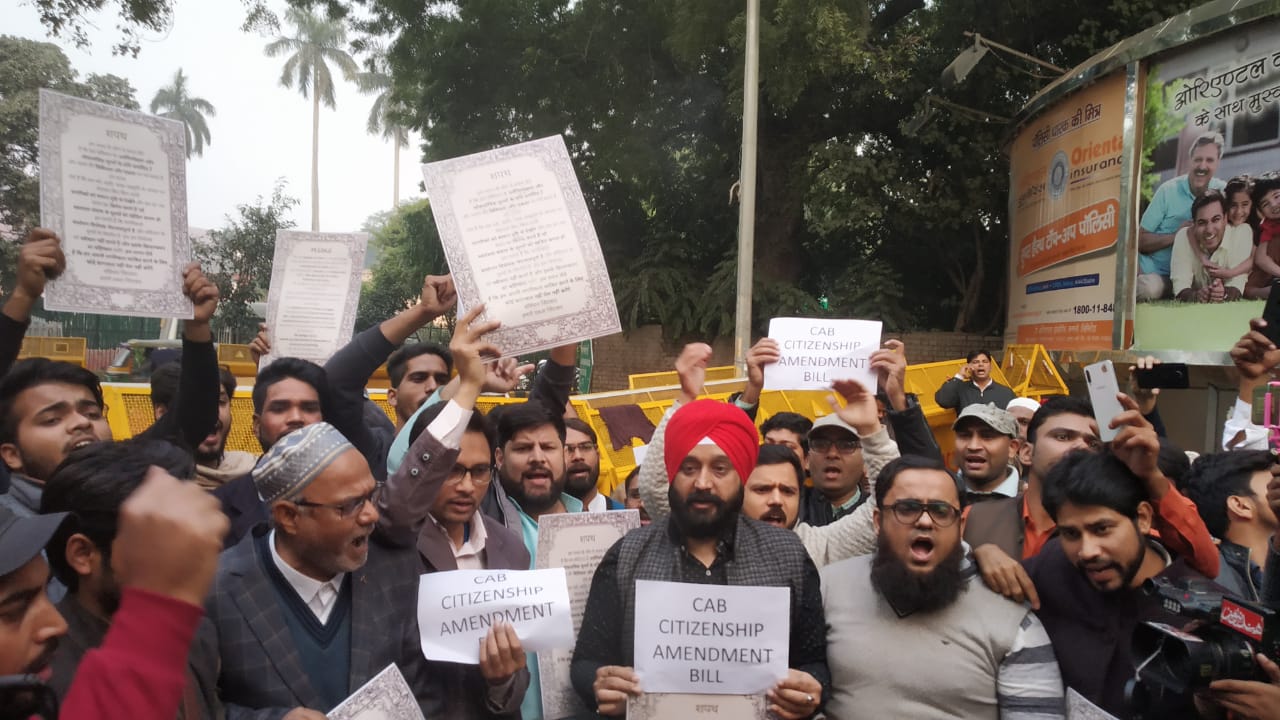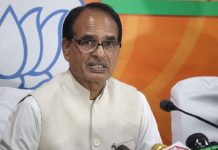Different parts of India are responding to it in various ways because different regions have different resentments associated with it. For instance, Assam is protesting because Assamese are feeling betrayed by the Assam Accord, 1985. Similarly, the rest of the North-East is opposing CAA and NRC because the people of this region fear cultural estrangement and economic deprivation. On the contrary, the refugees in Rajasthan and Gujarat who had migrated to India from different parts of Pakistan favoured changes in this law to facilitate the acquisition of citizenship.
Genealogy of CAA-NRC
The genesis of CAA could be traced back to the Citizenship (Amendment) Act, 2003. The 2003 amendment made important changes in citizenship by birth in the citizenship law and also introduced the category of overseas citizens of India. Both of these reforms marked a shift from the principle of jus soli to jus sanguinis in the law of citizenship. None of these reforms, however, created the sort of criticism, political polarization, and public outrage, in India or its various parts, as has been seen in the wake of the CAB’s implementation.
In 2003, the update to the Citizenship Act brought in two major changes — the acceptance in legislation of India’s overseas citizenship group, and the prohibition of birth-by-birth citizenship by confining it to only those whose parents were Indian nationals or one of the parents was an Indian citizen and the other was not an illegal immigrant. In addition, the 2003 Rules on Citizenship (Registration of Citizens and Issue of National Identity Cards) established the framework for establishing and maintaining the NRC (Registered Citizens ‘ Register).
Thus, the 2003 amendment emphasized the wall of separation between citizens and non-citizens by inserting in the section on citizenship by birth, the distinction between those who were born to Indian parents and were Indian citizens through descent and blood ties, and those who could not make such claims to citizenship by birth. The Registrar General of Citizen Registration was to establish and maintain the NRC under the Citizenship (Registration of Citizens and Issue of National Identity Cards) Rules, 2003. Under these rules, a house-to-house enumeration and collection of particulars of individuals and families, including their citizenship status, was to be carried out by the Central government. However, a different procedure was laid down for the state of Assam. In Assam, the preparation of NRC was precipitated by the Supreme Court’s judgment in the case Assam Sanmilita Mahasangha and Others v Union of India and Another, 2014.
The part draft of the NRC was released at midnight on 31 December 2017. Six months later, on 30 July 2018, the complete draft of the NRC was released, leaving out 40 lakh people who had applied to be included. Amidst large-scale dissatisfaction and uncertainty, those left out were promised the opportunity to be considered again and to make fresh claims. The Supreme Court had fixed 31 July 2019 as the last date for the submission of the final draft of the NRC. In the meantime, 36 lakh persons who had not figured in the complete draft NRC have presented their claims for inclusion in the final NRC. On 26 June 2019, an additional list was released by the NRC commissioner’s office in Guwahati taking off the names of one lakh persons from the draft NRC The second tendency emerging from the 2003 amendment has taken the form of the CAB 2016. The CAB exempts six “minority communities”—Hindus, Sikhs, Buddhists, Jains, Parsis, and Christians, from three countries Bangladesh, Pakistan and Afghanistan—from the category of illegal migrants, which was inserted in Section 3 (Citizenship by Birth) and Section 5 (Citizenship by Registration) of the Citizenship (Amendment) Act, 2003.
Exempting the specified minority communities from the list of illegal migrants, the 2016 CAB also aims to allow them to attain Indian citizenship by naturalisation, by reducing the minimum period of residence from 12 to 6 years. For this reason, the CAB has proposed to amend the Citizenship Act’s Third Schedule to make applicants belonging to minority communities from the specified countries eligible for citizenship by naturalization if they had stayed in India for a total period of six years.
Dissecting CAA-NRC
In terms of legality, some citizens are of the opinion that it violates Article 14 and Article 21 of the Indian constitution. Well, Article 14 of the constitution states:
“The State shall not deny to any person equality before the law or the equal protection of the laws within the territory of India.”
This article has two significant parts: Equality before Law, and Equal Protection of Law. The first aspect of this article forbids the state from discriminating on any ground. However, the second aspect allows the state for positive discrimination provided the state makes a reasonable classification. The condition behind the reasonable classification is “intelligible differentia” which refers to difference capable of being understood, or in other words, the classification should be identifiable, read and felt. An example of the second aspect of this article is the policy of reservation followed in India.
Next is Article 21 of the constitution which states:
“No person shall be deprived of his life or personal liberty except according to the procedure established by law.”
Some have argued that the Act also violates Article 21 of the Constitution of India, as it violates the right to live with dignity of individuals who are not covered under the special dispensation of the Amendment Act, solely on the basis of their membership to a particular religion.
However, all the contentious possibilities have already been dealt with in advance cleverly by the Joint Parliamentary Committee (JPC) for this Bill. The JPC, which was headed by Rajendra Agarwal – a member of Parliament belonging to the BJP, seems to have done all his homework prior to the claims made against this Act. The JPC took recourse to several cases in order to argue in favour of intelligibility and reasonableness: The Supreme Court judgment in 1952 in the State of West Bengal v Anwar Ali Sarkar, the Naz Foundation judgement (2009), and others.
Now, as far as this article is concerned there is an ambiguity that still prevails. An ambiguity that makes us question the fate of those who will not be able to prove their citizenship. Mr.Amit Shah argued in the parliament that there is a difference between religious persecution and sectarian persecution, and hence, there can be no discrimination for a denomination within a religion. Well, there are five types of persecution acknowledged by International law. They are persecution based upon race, religion, nationality, membership of a particular social group, or political opinion. The category sectarian persecution has not been discussed anywhere. In 2011, India decided to give long-term visas to persons facing persecution on these grounds as well as two additional grounds – sex and ethnic identity. The BJP is not willing to explain why one form of persecution has more importance than the other under this new law.
The implication of the Act
The cloud of uncertainty lies above the lives of many who won’t be able to prove their citizenship. The life in detention camps is below the human standards. Many people have already lost their lives in the detention camps of Assam. And more detention camps are under construction. Not only Assamese but those from other states, such as Jharkhand and Bihar, too, have lost their family members due to this horrendous Act. Further, more than twenty people have already lost their lives while protesting against this Act in many parts of our country. Who will take the accountability of these deaths?
The irony of the law lies in the fact that those who have voted for the BJP might also become non-citizens of our land once this law gets executed. Then from that logic, emerging from their vantage point, Modi, too, cannot remain the head of our state anymore. Again, this anomalous condition also remains unexplained by the government.
The estimated cost of the NRC is roughly 71,000 crore. In a nation that lacks health care facilities, education, and employment, do we really think that we can afford this foolhardy project? On one hand, the present regime is busy taking decisions of selling important state-owned companies such as BPCL to improve its fiscal deficits; and on the other hand, it is busy spending money on frivolous endeavours. Hence, this Act is not at all financially feasible. Moreover, the mental cost of the citizens due to bureaucratic hurdles NRC will create is nowhere taken into account. A daily bread earner will have to leave his work in order to prove his citizenship of India. This makes this law not only anti-marginalised but also anti-poor. But wait, the headache doesn’t end here. Now we have NPR (National Population Register), which is a precursor to NRC, to raise the obnoxiousness of the situation.
Many parliamentarians have filed a petition against this contentious Act in the apex court of our nation. However, one needs to understand that the Supreme Court of our nation decides what is ‘right and wrong’, it is not there to decide whether an act is ‘good or bad’. It is so because our judiciary doesn’t check the wisdom of the parliament – the ambit of policymaking lies entirely under the grip of the legislature. As far international laws are concerned, they become the guiding principle, and not the binding principle, for a country. Hence, the degree of relaxation vis-à-vis our migration/citizenship laws depends entirely upon the discretion of our parliament. The only thing, therefore, we can do at this moment is to question the intentionality of the bill, and hope that the constitutional morality overweighs the public morality.
The JPC took recourse to the precedent established through case law in its attempt to protect the CAB and support it against a possible charge of inconsistency with the Constitution. But the authority of a precedent and the transferability of principles articulated in one case to another, depend on whether or not the issues and facts of the case are consonant with each other. The Supreme Court is now there to see whether this law is in tune with the constitutional spirit of our nation.
Sagar Dey is The New Leam Journalist.














